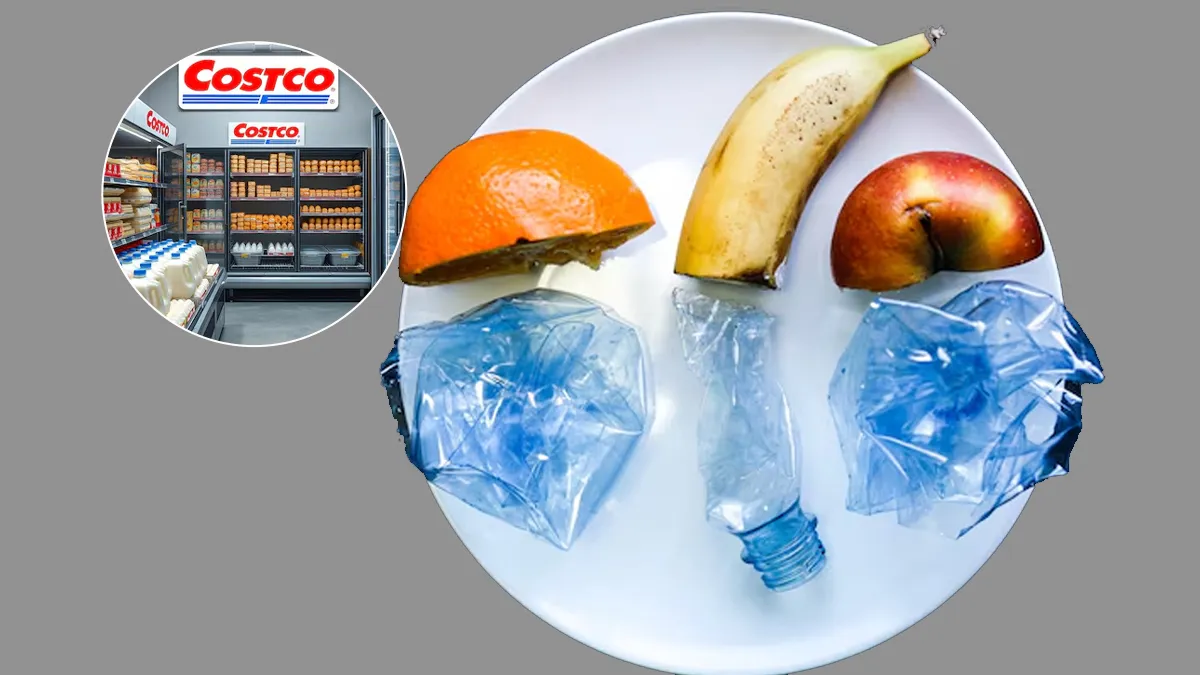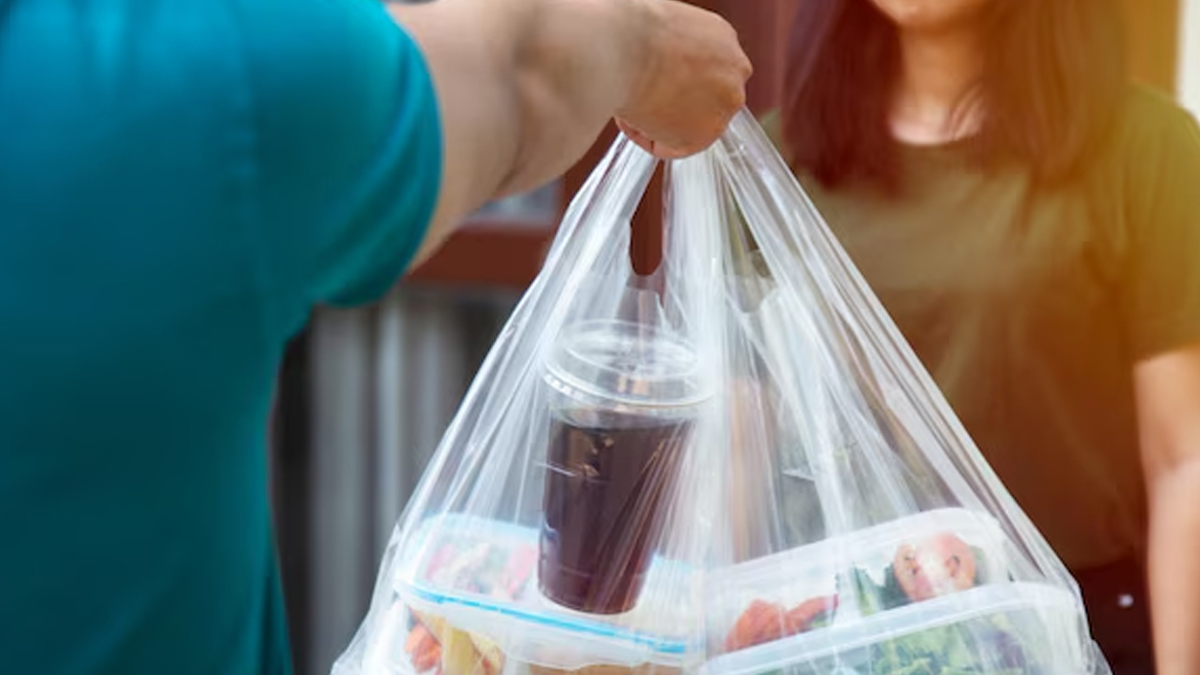
When it comes to grab-and-go meals, Costco is a reliable and popular option in the US. The retailer, however, recently made news for recalling two of its ready-to-eat Caesar salad products. The reason being stated for this step is due to the possible contamination of plastic in the salad dressing. The recall was announced November 7. This news has made us question – are we unknowingly consuming foods contaminated with plastic? Moreover, how harmful is plastic in food? This article will answer all these questions for you, and more.
Table of Content:-
To get a better understanding of this, the editorial team of OnlyMyHealth reached out to Dr Pooja Pillai, Consultant - Internal Medicine, Aster CMI Hospital, Bangalore. Keep reading.
Why Is Plastic In Food A Problem?
Our expert begins by explaining why plastic in food is a cause of concern. “Plastic in food is a problem because tiny plastic pieces, called microplastics, can enter our body and may harm our health by causing inflammation, stress on cells, and possible long-term damage," shares Dr Pillai.
She adds, “Plastic often contains chemicals such as BPA and phthalates. They can leak into food, especially when heated. These chemicals can affect hormones and the immune system. Consuming food stored in old, heated, or low-quality plastic containers can increase this risk. Over time, plastic build-up in the body may affect digestion, heart health, and fertility. Plastic in food also depicts that our environment is polluted, which means more plastic is entering the soil, water, and animals we eat. Reducing plastic use helps protect both health and nature.”

Side Effects Of Eating Plastic In Food
We all are aware that plastic, when consumed, can harm our health in multiple ways. Our expert jots down its side effects:
- Eating plastic in food can be harmful to health because plastics often contain chemicals like BPA and phthalates that can enter the body. These chemicals may disrupt hormones, affect the immune system, and cause stress to cells.
- Tiny plastic particles, called microplastics, can build up in the body over time and may affect digestion, liver, and kidney function.
- Long-term exposure may increase the risk of heart problems, obesity, and fertility issues.
- Plastic can also carry harmful bacteria or pollutants from the environment into food.
- Children, pregnant women, and people with health conditions are especially at risk.
Which Foods Have The Most Plastic?
But how can you identify which foods may have plastic in them? Dr Pillai helps us understand this.
“Some foods have more plastic than others because of packaging or contamination from the environment. Packaged foods like chips, snacks, ready-to-eat meals, and instant noodles often contain plastic in wrappers or containers. Canned foods with plastic linings can also have tiny plastic particles. Seafood, especially fish and shellfish, can have microplastics because they eat plankton contaminated with plastic in oceans. Bottled water and soft drinks in plastic bottles may also contain small amounts of plastic. Frozen or processed foods stored in plastic packaging can absorb chemicals from the plastic, especially when heated. Reducing packaged foods, choosing fresh fruits and vegetables, and using glass or metal containers can help limit plastic consumption.
Also Read: What If I Accidentally Eat Plastic? Understanding the Health Risks and What to Do Next
Steps Taken To Reduce Plastic In Food Production
Precautionary steps need to be taken on a larger scale to curb this. “To reduce plastic in food production, many countries and companies are acting. Some are banning or limiting single-use plastics like plastic bags, straws, and packaging. Food producers are switching to safer alternatives such as glass, metal, paper, or biodegradable materials for storing and packaging food,” shares Dr Pillai.
She adds, “Regulations are being strengthened to control the type of plastics that can touch food, especially to prevent harmful chemicals from leaching. Companies are also improving recycling and waste management to keep plastic out of the environment. Consumers are encouraged to use reusable containers and avoid plastic-wrapped products. Research is ongoing to develop new, safe, and eco-friendly materials that do not harm human health or the planet.”
Tips To Reduce Plastic Intake From Food
On this note, Dr Pillai lists down some tips to reduce plastic intake from food:
- Start by avoiding food stored or heated in plastic containers.
- Choose fresh fruits, vegetables, and unprocessed foods instead of packaged or ready-to-eat items.
- Use glass, stainless steel, or ceramic containers to store and heat food.
- Avoid plastic bottles and straws, drink water from safe reusable bottles.
- Check food labels and try to buy items with minimal or no plastic packaging.
- Wash and peel fruits and vegetables to remove any plastic particles or chemicals.
- Support brands that use biodegradable or safe packaging.
- Reduce takeaway or fast food in plastic containers.
- Being mindful of these choices helps lower plastic exposure and protects health over time.
Also Read: Plastics In Everyday Products May Raise Heart Disease Risk In Adults, New Study Warns
The Final Word
Plastic in food is a problem because tiny plastic pieces, called microplastics, can enter our body and may harm our health by causing inflammation, stress on cells, and possible long-term damage. Precautionary steps need to be taken on a larger scale to curb this. On an individual level, make certain lifestyle choices like reducing use of plastic containers or avoiding packaged or ready-to-eat items to reduce intake of plastic via food items.
Also watch this video
FAQ
What are the side effects of plastic in food?
In humans, microplastics can disturb various bodily systems, including the digestive, respiratory, endocrine, reproductive, and immune systems.How to remove plastic from the stomach?
Microplastic beads are passed into the gut and egested with feces.How do you flush microplastics out of your body?
You can help your body remove microplastics by increasing fiber and water intake, which helps flush them out through waste and sweat.
How we keep this article up to date:
We work with experts and keep a close eye on the latest in health and wellness. Whenever there is a new research or helpful information, we update our articles with accurate and useful advice.
Current Version
Nov 26, 2025 15:45 IST
Published By : Shruti Das